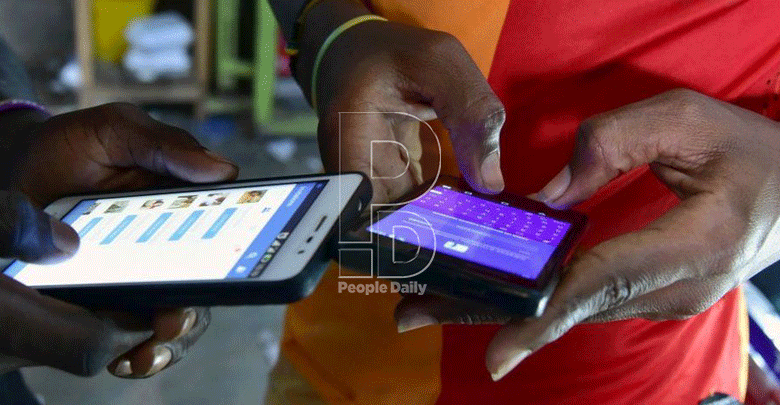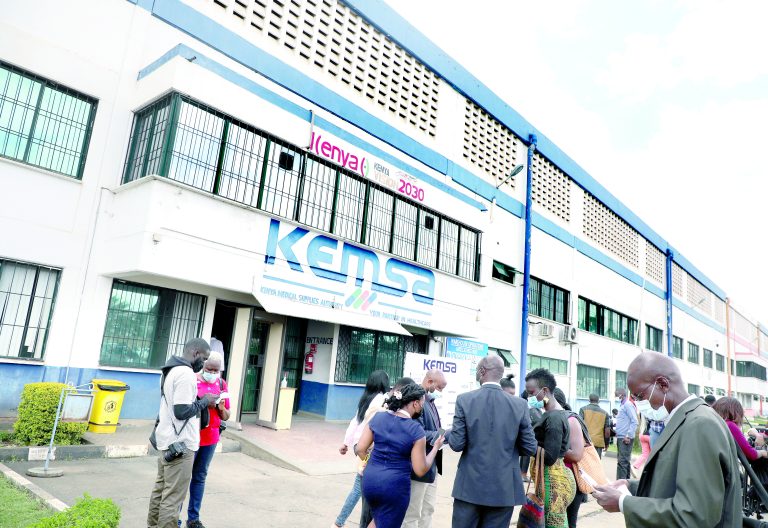Are digital loans a blessing or curse? Jury still out

That more Kenyans in formal employment are taking loans from digital lenders speaks volumes about the state of the economy, the rising cost of living and that the two setbacks have compelled workers to be more innovative in seeking secondary income avenues.
According to a report published this week, formal sector workers are taking digital loans to grow small businesses, known in Kenyan lingo as ‘side hustles’.
This could be an indication that because of the challenges posed by Covid-19, and the financial strain this has caused, more workers have awakened to the need to create new revenue streams rather than rely only on their jobs for income.
However, if they are borrowing for consumption, it could mean with more people either unemployed or underemployed, formal sector workers have more mouths to feed and, as a result, cannot afford to do so on their incomes alone.
It is interesting that both formal and informal sector employees have indicated that they borrow to finance small businesses.
If this is the case, it could be an indication that more Kenyans are willing to take risks to grow their incomes, and if their businesses survive beyond the first year, this could have far-reaching ramifications for the job market.
It will mean that professionals whose businesses succeed during trying times will pivot when the economy eventually re-opens as it is expected to at some point.
That could leave employers in a bind unless they can find innovative ways of retaining workforces when the good times roll in.
First, it means workers are increasingly looking beyond their employer. As happens in such circumstances, when the grass eventually becomes greener, many trained and valued professionals are likely to exit formal employment to pursue own interests.
This is especially more plausible given that Covid has demonstrated to workers they can operate from home and do not have to sit in a controlled environment to be productive.
It is possible some of the small businesses they are starting now will grow into outliers.
In turn, they will either be onboarded by bigger players in the same market or offered long-term partnerships.
Eventually, the partnerships or buyouts become more emotionally and financially fulfilling, necessitating their founders leave employment to concentrate on running their enterprises.
The risk, of course, is that many businesses — about 80 per cent — die within a year of founding.
More sobering still is that only 10 per cent of businesses celebrate their third birthday.
This means those borrowing to fund ‘side hustles’ will need to be focused in growing them into the future so that they can not only survive the two milestones but also thrive once they overcome the force of gravity that is holding them back.
Growing an enterprise into a business requires passion, patience and persistence.
Many face difficult hurdles when starting out, with lack of capital being the most daunting.
With digital lending, however, small businesses and their founders now have an opportunity to circumvent formal banking institutions and restrictions to access the cash they badly need to run their day-to-day operations given that in a depressed economy like ours today, cash is king.
This does not only apply to small firms. Even big businesses that are experiencing degraded cash flow will have a major challenge getting back up when the economy recovers.
Depending on where one sits, this increased digital borrowing — which has reached an astronomical Sh1.2 billion per day on just two platforms in recent months — could be both a blessing or a poisoned chalice.
A blessing if the money is used to fund new revenue streams as this could lead to the birth of new innovations, products and services.
A poisoned chalice if all that money is being used to meet consumption needs.
The most important thing, however, for both individuals and businesses at the present, is to preserve themselves until the economy revs up again.
They can take consolation from the great depression, which hit America in the 1930s.
Despite the dire times that they endured then, Americans and their economy rebounded after about four years.
If the Americans did it, so too can others facing similar challenges today. — The writer is a Partner and Head of Content at House of Romford – Mbugua@houseofromford.com












